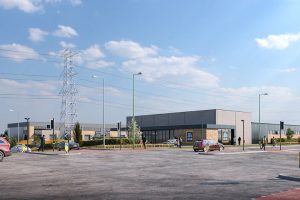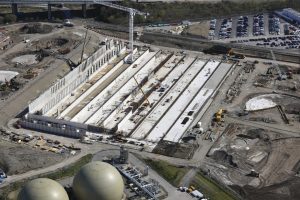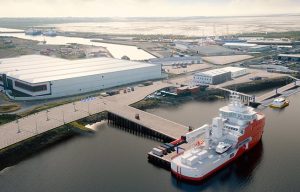Building a profitable business today, with a lasting legacy for tomorrow


We are at a pivotal point where what happens in this decade will determine what happens for thousands of years to come. This relates not only to climate change and limiting global warming to 1.5C above pre-industrial times, but also to delivering the global Sustainable Development Goals (SDGs), which can achieve a greener, more equal, and harmonious world.
As businesses we have a responsibility environmentally and socially to support in achieving these goals. But doing the right thing isn’t just good for people and the planet; it’s also good business and is linked to better financial performance and higher returns.
Over the last 12 years, we have gathered a wealth of quantitative data that has enabled us to assess the relationship between ESG performance and financial success. Our analysis shows a striking correlation between those who perform well in ESG and the business’s financial success, which translates directly to company valuation.
Using our proprietary Six Pillar framework and scoring system, we see that as ESG performance exceeds a score of four (the score we consider companies to have holistically integrated sustainability into their business strategy and where companies receive a return on investment), there is a marked increase in revenue and EBITDA as well as generating significantly higher returns. From our experience, the reasons for this linkage are numerous, including facilitating top-line revenue growth, minimising operating costs, increasing employee productivity, engagement and staff retention and minimising impacts and costs associated with regulatory intervention/insurance claims.
With the ever evolving and growing landscape of ESG, starting your sustainability journey can seem daunting, but our advice is to not let perfection get in the way of progress! Here are some good areas to focus on that will help your business become more sustainable.
- Complete a materiality mapping exercise – this will allow you to be specific about the ESG elements you’re focusing on improving. It also allows you to start small and grow into your sustainability efforts.
- Lead from the top and use it as an opportunity to engage staff and expose passionate employees to a new area of business growth. Engaging employees and creating a shared purpose can significantly increase the success of ESG commitments.
- Ensure that you are authentic when it comes to sustainability. Your actions and operations should align with the sustainability commitments that you’re communicating.
- Have a holistic approach to ESG and consider using B Corp as a framework for sustainability strategies.
Looking forward to 2024 and beyond, it’s clear that climate reduction will remain a key area of focus as we work towards becoming Net Zero by 2050. There is a growing body of evidence that shows that more urgent action is needed, which we will see being mandated in policy and in value chains. As we face humanitarian crises, inclusion and diversity are more important than ever both in society and the workplace and place increasing pressure on businesses to remain competitive and dynamic. We also see increased investment required in wellbeing and engagement as staff retention and upskilling become key to business success in a tricky market that is characterised by an exhausted workforce, competitive talent landscape and a new generation entering the workforce.
Sitting still is not an option if you want to build a successful business today with a lasting legacy for tomorrow. Get in touch and see how we can support your company on its sustainability journey: info@palatinepe.com








